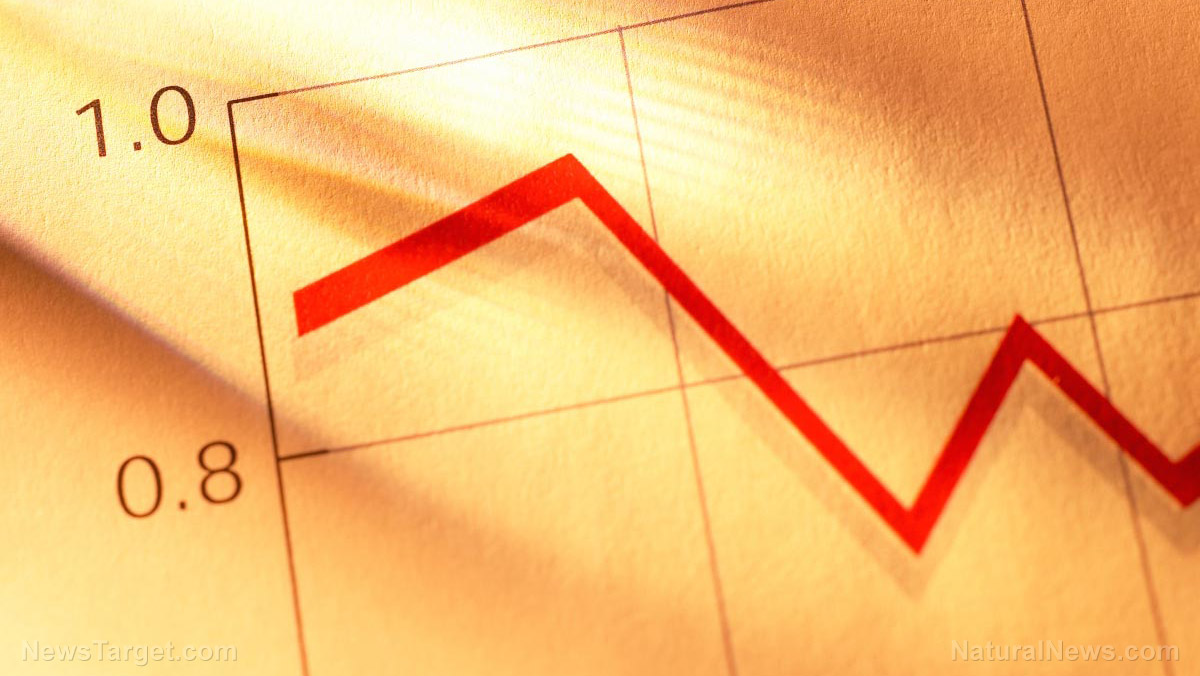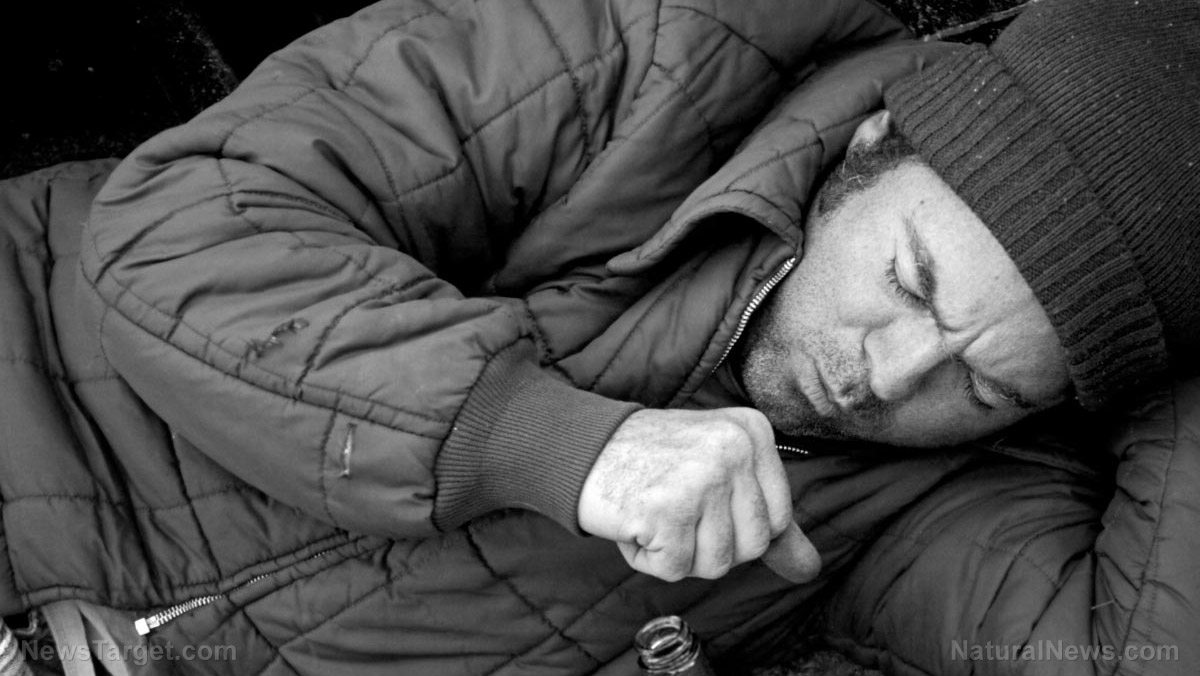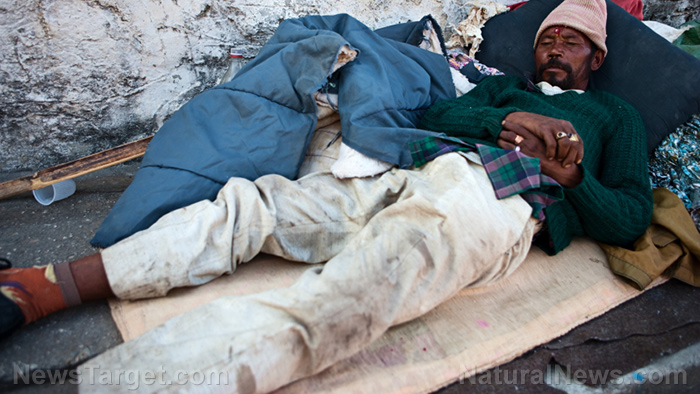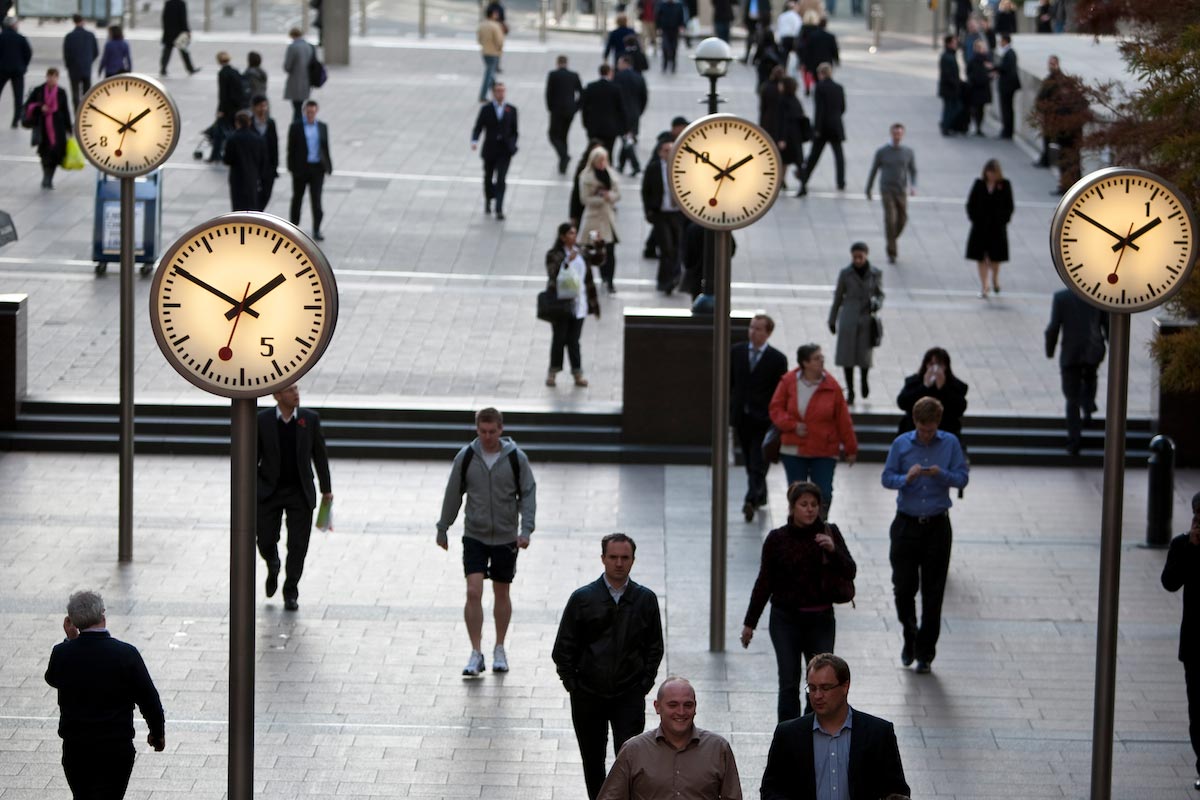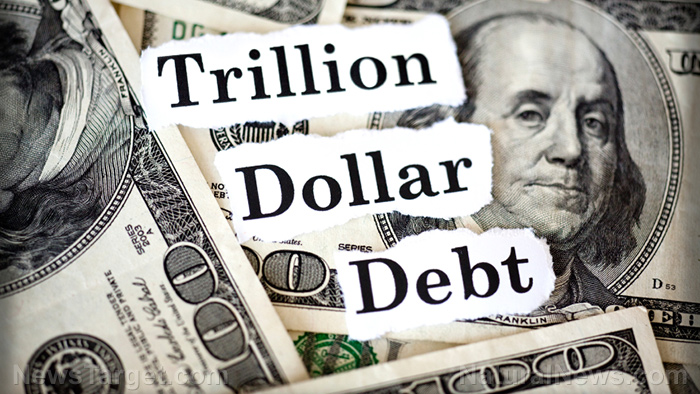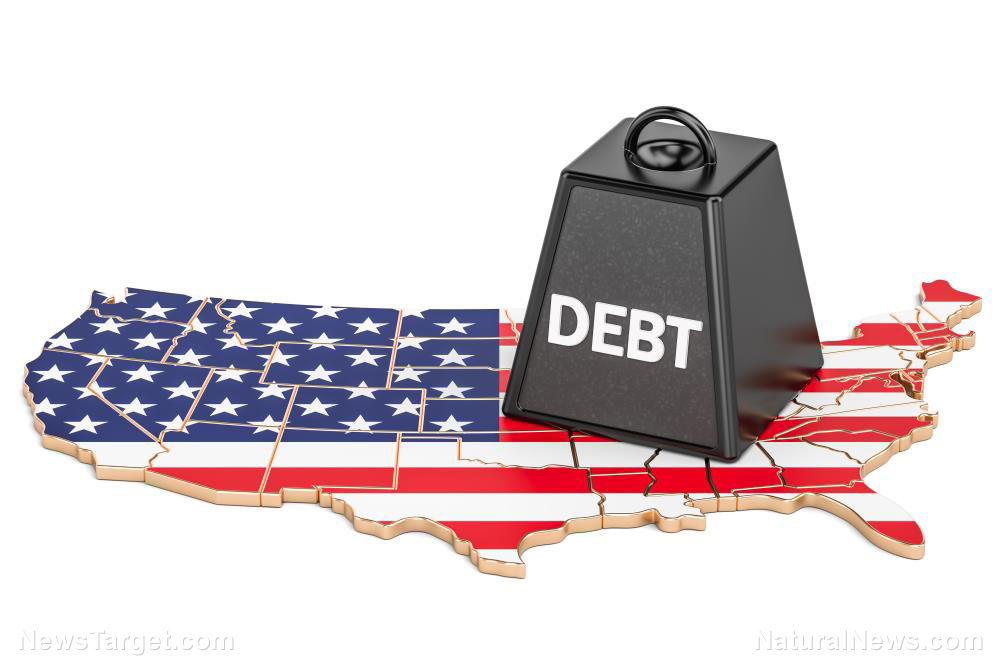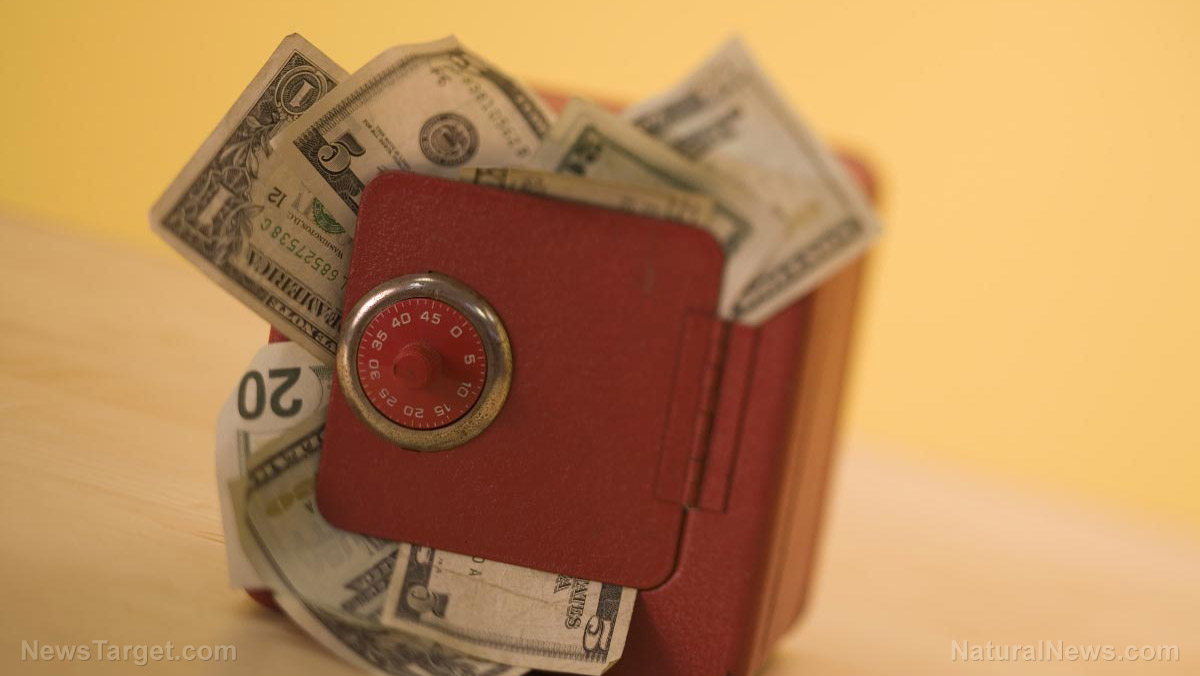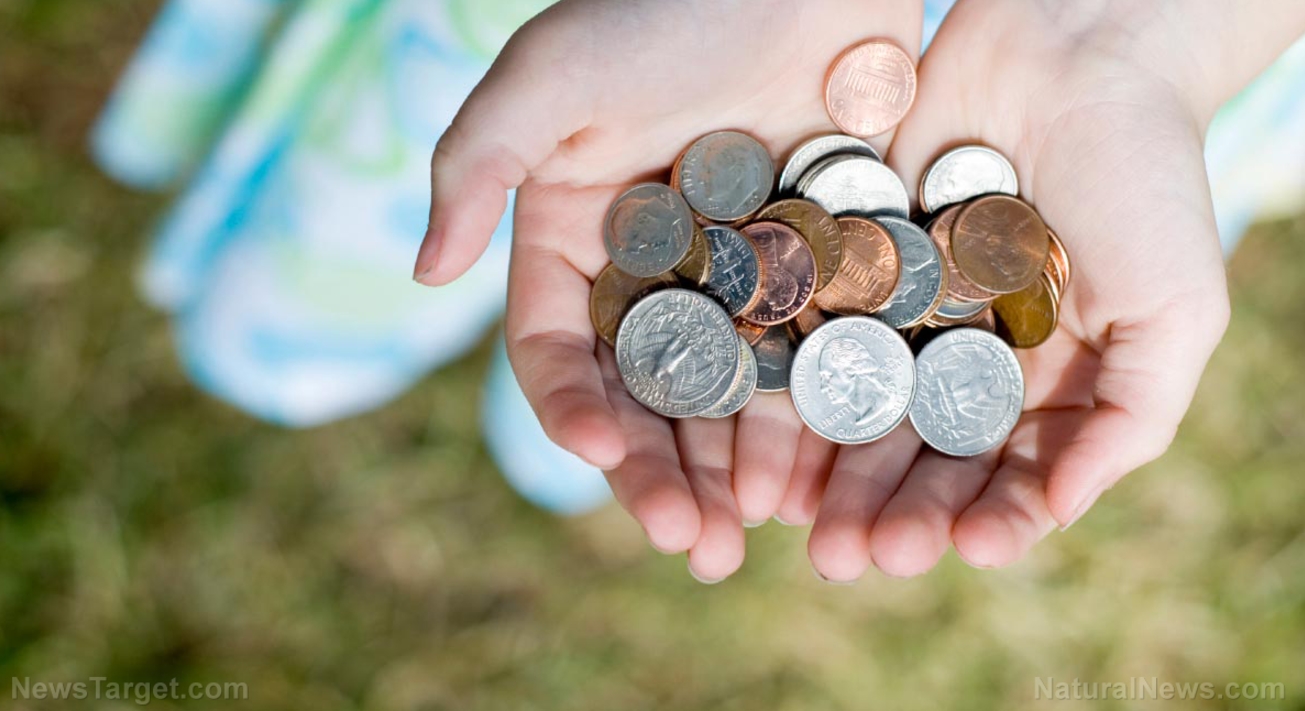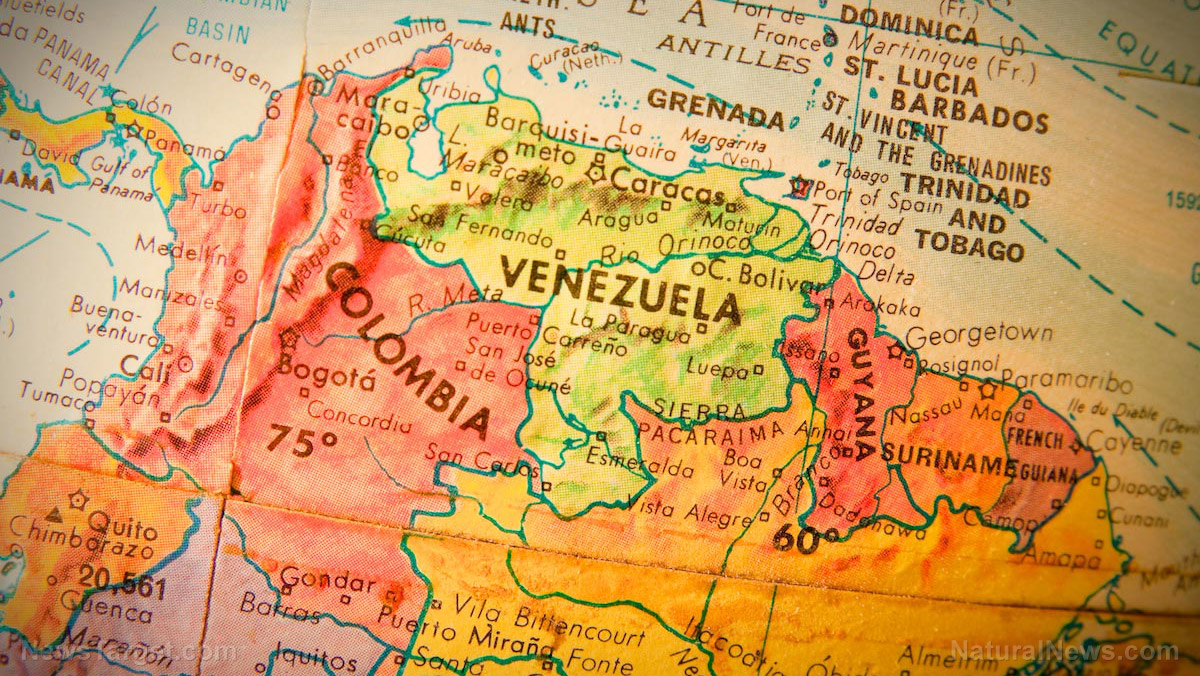The US economic collapse will look like this – are you ready for it?
11/05/2019 / By Ralph Flores
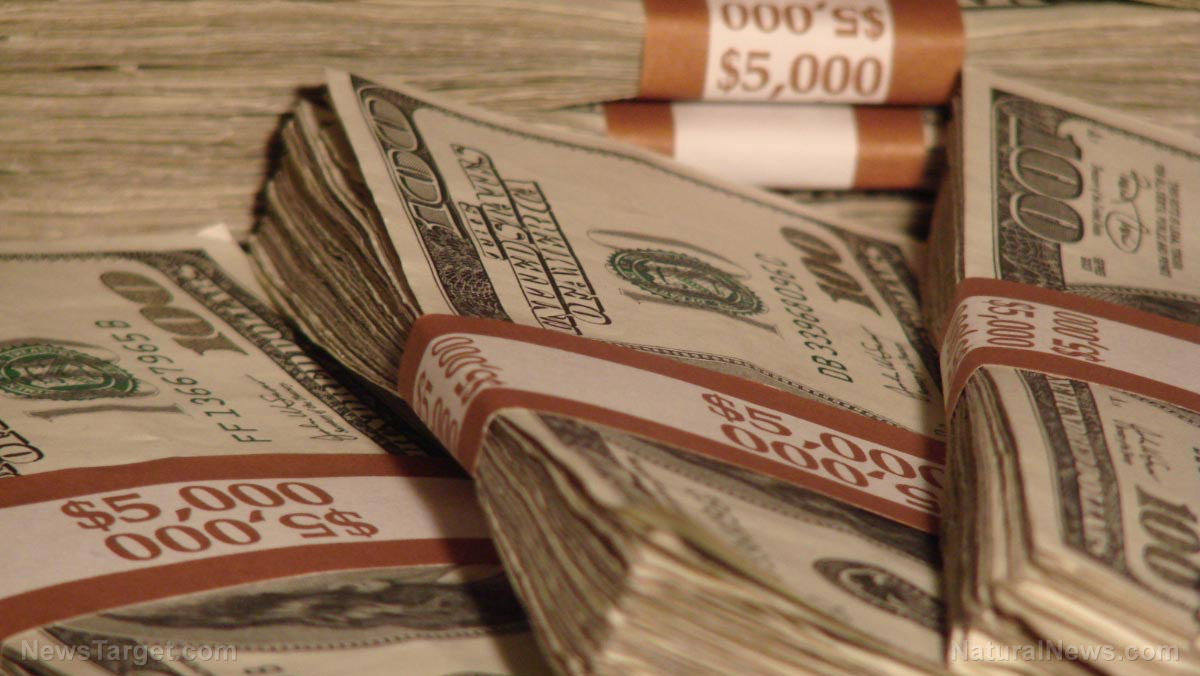
The US has one of the strongest economies around the world, even as the rest of the world is showing signs of cooling and slowdown. In its latest World Economic Outlook, the International Monetary Fund said that the world’s largest economy remains a “bright spot” on the global stage.
Given America’s status of being the economic leader of the world – something it’s been holding onto since 1871 – it’s pretty farfetched to think that it’s bound for collapse. While it’s a scenario many people hope they’ll never live through, preppers should view economics as the “writings on the wall,” so they can act accordingly.
Not like the movies
People think an economic collapse is akin to dystopia. In reality, it couldn’t be further from the truth.
In fact, the US economy already teetered on the brink of collapse, after banking giant Lehman Brothers crashed in September 2008. The bank’s collapse sent the world’s economy into a tailspin, devastating markets around the globe. The aftermath of the collapse was so severe that countries in Central Europe sought billions in IMF loans to keep their markets afloat. In the US, the government implemented a $700-billion bailout to save the then-ailing financial sector and prevent a total collapse.
While the 2008 financial crisis can be considered a “near miss” with economic collapse, what are other scenarios that could potentially trigger it? (h/t to the TheBalance.com)
- Hyperinflation. This scenario occurs when a government has to issue large amounts of “paper” money in response to a very rapid increase in prices. In Zimbabwe, a failed monetary policy led to chronic cash shortages and hyperinflation that has decimated the country’s savings twice in just over a decade.
- Natural disasters. The economic burden of rehabilitation after a severe natural disaster can also lead to an economic collapse. A report by the Congressional Research Service said that the 2011 Tohoku earthquake and tsunami cost Japan up to $330 billion in physical damages alone. While the world’s third-largest economy was able to gradually recover afterward, it wouldn’t be difficult to imagine what would happen if something as (or even more) powerful hits – like the Yellowstone supervolcano.
- Cyberattacks. Modern advancements in technology have improved the way people handle information, but they have also given rise to cyberattacks that exploit this system. A study by researchers from Nanyang Technological University in Singapore revealed that a coordinated cyberattack could cause up to $193 billion in damages and affect over 600,000 businesses around the world.
Spotting the warning signs
While the threat of any of these three things happening in the near future is highly unlikely, preppers still need to understand that they’re not necessarily out of the woods. Right now, there are indicators that a potential economic downturn is looming – you just need to spot it before it’s too late. (h/t to TheOrganicPrepper.com)
- Look out for gradual signs of collapse. The US economy might have dodged a bullet with the 2008 financial crisis, but that doesn’t mean preppers should rest easy. In fact, signs of another crisis are already looming, with the lack of full-time jobs with benefits, increasing consumer and student debt and skyrocketing rent. The retail industry is currently taking a hit in what it calls the “retail apocalypse” – with over 6,000 stores shuttering in 2019.
- Look at your family’s day-to-day expenses. The American family might look idyllic, but it holds a dark secret. In a report released by the US Federal Reserve, at least 40 percent of American families will have trouble covering an unexpected $400 expense, and over 15 percent of adults can’t pay all of their bills in a month. What’s worse, a third of these families are just an emergency away from being in serious financial trouble.
- Look at the middle class. You’ve heard everyone talk about the “middle class,” but what is it exactly? Loosely defined, the middle class is a group of people whose incomes fall between the top and bottom 20 percent of the median income. A report by the Pew Research Center reveals that over 50 percent of Americans identify as middle class. For preppers, looking at how these families earn enough to be middle class is a good vantage point. More often than not, stories of families working two, even three, jobs just to get by are starting to become common. When all you see are people working just to maintain a roof over their heads or heat for the winter, then you’ve got a warning sign.
The face of economic collapse
The US is in the middle of its longest expansion period in history, which saw a 25-percent uptick in GDP since it started in June 2009 and an unemployment rate of just 3.6 percent, the lowest since 1969. That said, the good times won’t last forever, especially when it comes to economics – which, of course, moves in cycles. Many economists have different theories on what will trigger the downturn – say, overreacting to inflation, a lack of foresight in policy, even a continuation of the 2008 meltdown. But for preppers, it’s more important to understand what a downturn will look like, so they can be ready in the face of economic collapse.
- Shock. Economic expansion is something that many countries can only dream about. However, it also lulls people into the normalcy bias that makes it impossible to imagine a collapse. Once a collapse does happen, everyone will not only be caught off guard, but many will be left with nothing but the clothes on their backs.
- Backlash. As soon as the almighty dollar hits rock-bottom, a lot of people will be unable to keep up with the inflation that most certainly follows a collapse. That – and a government that’s quick to announce bailouts – is a recipe for a backlash against the government.
- Violence. People who have already lost everything have nothing left to lose. This mindset can give criminal elements an upper hand, as they exploit low income-earners to commit burglaries, robberies, and assaults. Economic collapse can even give rise to a new breed of criminals, as highly educated people resort to evil deeds just to survive.
Indeed, these situations are just some of the possibilities that can arise in an economic collapse. So, what can preppers do in the face of overwhelming odds?
For one, you can start preparing for it right now.
- Keep your assets as liquid (readily available) as possible before an economic collapse. Make sure you can withdraw them in a week once everything goes south.
- Make sure you have a stash of $20 bills and gold coins – these can prove useful in bartering and paying bribes.
- Keep your passport and other important documents updated and ready-to-go. While the economy is thriving, choose a country that you can escape to once SHTF. Visit the place to learn more about how to survive in that area once you make your move.
- Learn a skill that is valuable in a traditional economy, that is, a system that relies on bartering for goods and services. Some examples include cooking, farming, or repair.
- Start working out. When push comes to shove, you need to be strong enough to live off the land, if need be. While you’re working out, learn basic survival skills and self-defense.
- Live within your means. Understanding that an economic collapse could happen anytime means that you need to make better choices, especially on the things that count. Sure, you can enjoy your vacation, but make sure to have enough left for a rainy day.
For now, people can only guess what the next big economic disaster will look like. But preppers who can read the signs of collapse from a mile away can do something to keep themselves and their loved ones covered.
Sources include:
FAS.org [PDF]
Tagged Under: chaos, Collapse, cyberattacks, disasters, dystopia, financial crisis, government debt, hyperinflation, IMF loans, Japan, Lehman Brothers, median income, middle class, money supply, national debt, preparedness, prepping, recession, SHTF, survivial, technology, US economy, violence, world economy, Zimbabwe
RECENT NEWS & ARTICLES
COPYRIGHT © 2017 NATIONAL DEBT NEWS

